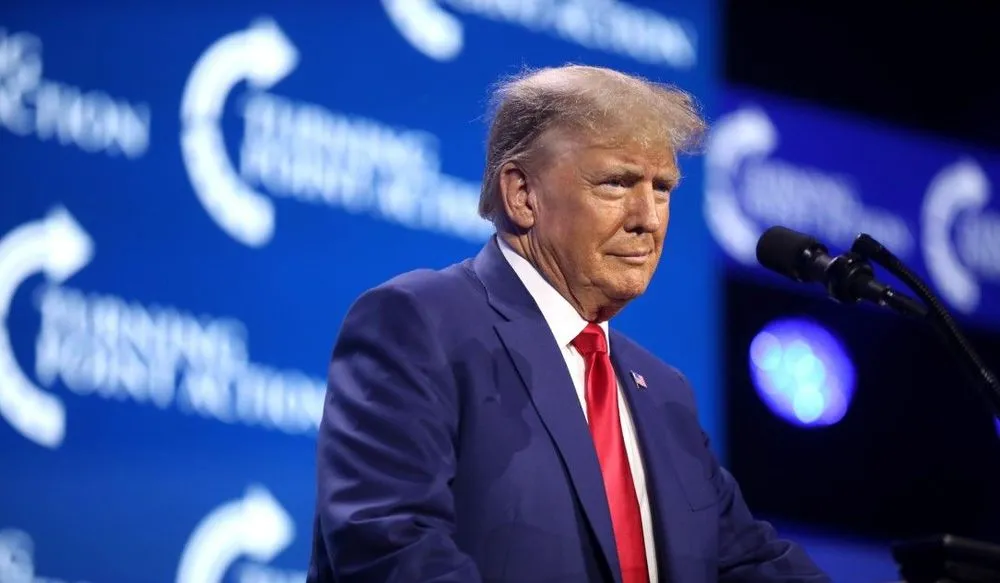Potential Trump cyber picks coalesce — but insiders say there could be surprises
President-elect Donald Trump’s transition team has spoken little of cybersecurity policy over the last two weeks as he makes his Cabinet-level appointments, but a roster of likely cyber nominees for key posts in the next administration has begun to emerge.
Potential contenders for the the roles of the White House national cyber director, the director of the Cybersecurity and Infrastructure Security Agency (CISA), the cyber lead at the National Security Council (NSC) and the undersecretary of strategy, policy, and plans at the Department of Homeland Security (DHS) are being floated by well-connected insiders and former high-ranking Trump officials, according to four people who spoke to Recorded Future News on the condition of anonymity to discuss the fluid deliberations.
A major complicating factor is that, to date, the president-elect has tapped people in his personal orbit for administration jobs, forgoing career public servants or those with previous experience, even from his first White House stint. As a result, even those closest to the president have been caught off guard by some of his picks.
None of the four sources are members of the cybersecurity transition team and it is not clear that there is a formal set of advisers guiding the process. One of two former high-ranking Trump officials said it appears that there is no official transition team.
The sources said the following officials, who served in the first Trump administration, are thought to be leading candidates for those top jobs. It is not clear which role, if any, each might end up getting as they are considered to be qualified for multiple posts.
Karen Evans
- Former chief information officer at DHS during the final year of Trump’s presidency. Prior to that, she was assistant secretary for cybersecurity, energy security and emergency response at the Department of Energy (DOE). Evans now runs the Cyber Readiness Institute, a nonprofit founded in 2017 that focuses on providing small businesses with free cybersecurity tools.
Brian Harrell
- Former assistant secretary for infrastructure protection at DHS from 2018 to 2020, Harrell now works as vice president and chief security officer for Avangrid, an energy company that had more than $8 billion in revenue in 2023. He is a member of DOE’s Electricity Advisory Committee and the Transportation Security Administration’s Surface Transportation Security Advisory Committee.
Matt Hayden
- Former assistant secretary of homeland security for cyber, infrastructure, risk and resilience policy, from 2020 to 2021, before which he held a series of other DHS roles. Hayden now works as a vice president at General Dynamics Information Technology, the IT services and consulting arm of the aerospace and defense giant General Dynamics. He is a member of the National Security Institute and a senior fellow at the McCrary Institute.
Sean Plankey
- Former principal deputy assistant secretary for cybersecurity, energy security, and emergency response at DOE from 2019 to 2020. He previously served as a director of cyber policy at the National Security Council from 2018 to 2019. Plankey is now the global head of cybersecurity software at the global insurance brokerage services firm WTW (formerly branded as Willis Towers Watson).
Meanwhile, Rob Strayer is a contender for the cyber ambassador role at the State Department and Lucian Niemeyer is seen as a strong bet for the assistant secretary of defense for cyber position, the sources said.
Strayer, now president of the Critical Minerals Forum, served as deputy assistant secretary of State for cyber and international communications policy from 2017 to 2020. The sources speculated that he might not want to leave the private sector.
Niemeyer is now the CEO of Building Cyber Security, a nonprofit focused on bolstering structural digital defenses and physical safety. He served as the deputy program associate director for national security programs at the Office of Management and Budget from 2020 to 2021 and before that as assistant secretary of Defense.
Nick Andersen, a former DOE and Office of Management and Budget cyber official, is thought to be in the mix for a leadership role. Mike Klipstein, a former NSC official, is also a contender for a job.
It’s unclear when the picks for the second-tier, Senate-confirmed jobs might be settled on, due to the current commotion at the Cabinet level created by Trump’s initial picks to lead the Defense and Justice departments. (One of them withdrew Thursday after questions about past allegations of sexual misconduct.) Trump’s choice for director of national intelligence has invoked strong pushback for past statements on Russia and for meeting with Syria’s authoritarian regime.
The time being spent trying to overcome the controversial nature of those picks and others has slowed down decisions about the cyber team, two of the four sources said.
Karoline Leavitt, a spokesperson for Trump's transition team, declined to comment on specific nominees.
“President-Elect Trump is making decisions on who will serve in his second Administration,” she said in a statement. “Those decisions will continue to be announced by him when they are made.”
Suzanne Smalley
is a reporter covering digital privacy, surveillance technologies and cybersecurity policy for The Record. She was previously a cybersecurity reporter at CyberScoop. Earlier in her career Suzanne covered the Boston Police Department for the Boston Globe and two presidential campaign cycles for Newsweek. She lives in Washington with her husband and three children.
Martin Matishak
is the senior cybersecurity reporter for The Record. Prior to joining Recorded Future News in 2021, he spent more than five years at Politico, where he covered digital and national security developments across Capitol Hill, the Pentagon and the U.S. intelligence community. He previously was a reporter at The Hill, National Journal Group and Inside Washington Publishers.




